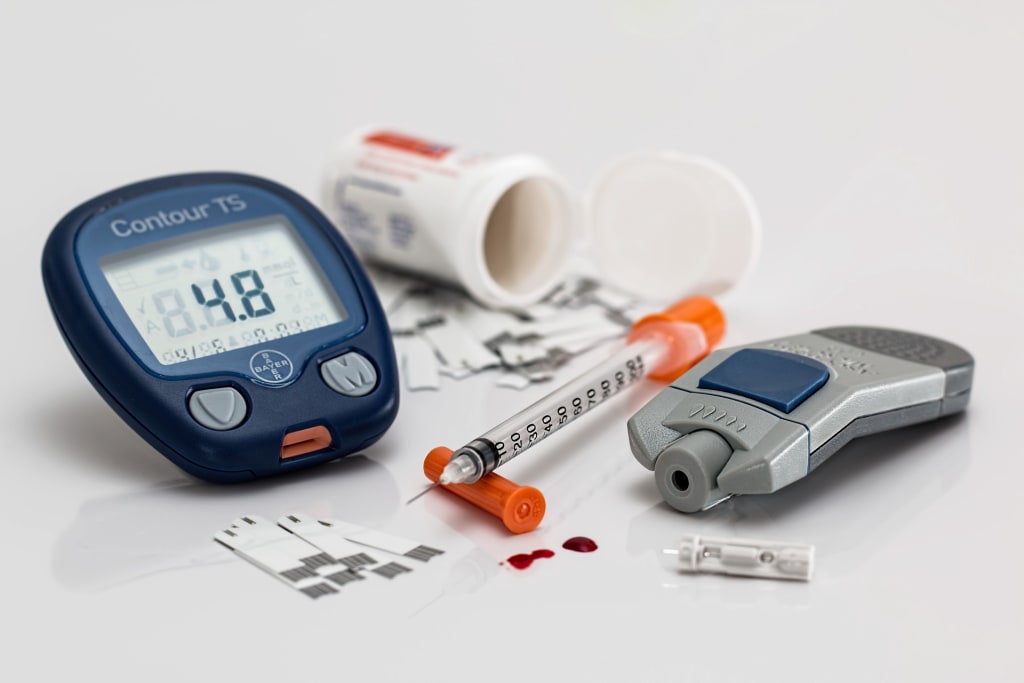Diabetes
Poverty, ignorance driving Nigerians to the grave

There is no doubt that the high cost of diabetes treatment in Nigeria has contributed to the rise in untimely and unnecessary deaths of individuals suffering from the disease in recent times.
The cost of medicines and diabetes screening has posed a major challenge as more than two-thirds of the patient population is not able to afford medicines and check themselves regularly, which mostly leads to complications and sometimes death.
This was the case of Rachiel Utam, a 38-year-old woman who lost her left limb due to type 2 diabetes and was on the verge of losing her right a year later because she was unable to buy her medicines and get tested strictly.
Mrs Utome, who is suffering from diabetes, said the doctor had told her a month back that five of her toes were infected and had already rotted, but they were trying to see if the rest would heal.
Utom, who revealed that diabetes ran in her family, regretted that the disease had put additional burden on her poor family which was the main reason for their inability to access quality health care.
She admitted to presenting too late to the health care center and the endocrinologist said that leg amputation was the only option to save her life.
Utom's case was one of many cases in the country of diabetics who could not afford drugs to properly treat the disease until it reached an advanced stage, making treatment difficult or ineffective.
A survey showed that every day 3-4 persons are cut off due to complications of diabetes in South South Nigeria. This is one of the consequences of complications arising from this disease.
Diabetes, as defined by Dr Umoren, an endocrinologist in Akwa Ibom State, is a disease that occurs when the body cannot effectively use the insulin produced or when the pancreas cannot produce enough insulin for the body.
Excess glucose stored in the body over time can damage various organs of the body, especially the eyes, kidneys, heart, organs and reproductive organs.
Umoren notes that normal glucose levels in the body should be between 3.5 and 5.5, adding that between 5.6 and 6.9 is a prediabetes state and above 7 is a danger zone, so everyone is expected to That he/she should check his/her sugar level regularly to know his/her status. proper medical attention.
Diabetes is a global public health issue and the rate at which people are infected with it nowadays is alarming as a study revealed that one in every 10 adults in urban areas of Nigeria has diabetes. People who have the disease may not know until it becomes complicated.
According to the United Nations, "Every five seconds, there is always a new diagnosis of diabetes, every 10 seconds someone dies from diabetes, every 30 seconds a limb is lost due to diabetes."
The International Diabetic Federation, IDF, describes diabetes mellitus as the greatest global health emergency of the 21st century, mainly because of its severe and fatal consequences.
From the 10th (2021) edition of the IDF Diabetes Atlas, which shows the 2020-2045 Diabetes Report, the total number of people living with diabetes in Nigeria has increased from 3.05 million in 2011 to 3.6 million in 2021, and is projected to reach 4.94 million in 2030 and 7.98 million in 2045.
The World Health Organization also revealed that 24 million Africans are living with diabetes, while a total of 416 million people will lose their lives to the disease in 2021.
However, Dr. Sam Onang, consultant physician and endocrinologist at the University of Uyo Teaching Hospital (UUTH), said in an interview that 10 percent of the population in Akwa Ibom, which is part of the South South region of the country, is infected with diabetes, noting that That the prevalence rate of diabetes is higher than that of HIV, tuberculosis and malaria combined.
He pointed out that six lakh people in the state are living with diabetes and called for declaring an emergency over the disease.
According to the projection of the World Health Organisation, 578 million people globally could suffer from diabetes in 2030 if the disease remains uncontrolled.
The WHO also revealed that 24 million Africans are living with diabetes, while a total of 416 million people will lose their lives to the disease in 2021. It is projected to become one of the leading causes of death in Africa by 2030.
Speaking on the topic 'Access to Diabetes Education' during the 2022 Diabetes Memorial Day, Dr. Onung urged people to check their blood sugar regularly and be aware of their lifestyle, especially alcohol intake, consumption. called for raising awareness on the need for Junk food and physical inactivity.
He expressed dismay at the government's non-commitment to the plight of people suffering from diabetes, which it is currently doing to those suffering from HIV, tuberculosis and malaria.
He, therefore, called upon the Akwa Ibom State government and public spirited individuals to provide free medical treatment to people suffering from diabetes or help with treatment and testing for them.
"We are calling on the government and other well-wishers to stop our patients from dying because we are not giving diabetes the attention it deserves.
“Diabetes is killing more people than HIV; We need to give diabetes the kind of attention we are giving to HIV so that patients do not die from inability to afford their medicines and get lab tests done to enable them to live normally.
Onung said this year's Diabetes Awareness Day was celebrated at the state's Oron Local Government Area General Hospital, Equita, adding that 510 people were screened during the exercise.
He revealed that due to the change in lifestyle of individuals, more people are falling prey to diabetes which was not the case many years back.
“In the time of our ancestors, they used to be very active, they could walk long distances to their fields as a form of exercise. They used to eat natural foods, fruits, vegetables, unpreserved fast and junk food which is considered unhealthy.
“When you combine physical inactivity and unhealthy diet with increased stress these days, we are definitely bound to see more people coming down with diabetes. When people are stressed, it negatively affects the endocrine system. affects that lead to uncontrolled high blood sugar," he said.
He cautioned the people against self-medication saying that it is not advisable to do so as there is no cure for diabetes as of now.
Meanwhile, the economic and financial impact of diabetes on the per capita related expenditure in Nigeria has been increasing steadily over the years. Diabetes deepens poverty and hunger for the family. The cost of drugs and monitoring equipment has become unaffordable.
According to the IDF, the per capita diabetes treatment cost is expected to increase from an average cost of N60,000 in 2011 to N300,000 in 2021, and above N500,000 in 2030 and over N1.0 million by 2045.
It added that the total diabetes-related health expenditure in the country is expected to gross N745 billion in 2021. It will reach more than N1.07 trillion in 2030 and N1.59 trillion by 2045.
With most patients funding their medical bills out of pocket, many diabetics fail to adhere to their medications and tests. Only 1 in 5 patients self-monitors blood sugar, among other tests. Many patients resort to unconventional treatments.






Comments
There are no comments for this story
Be the first to respond and start the conversation.